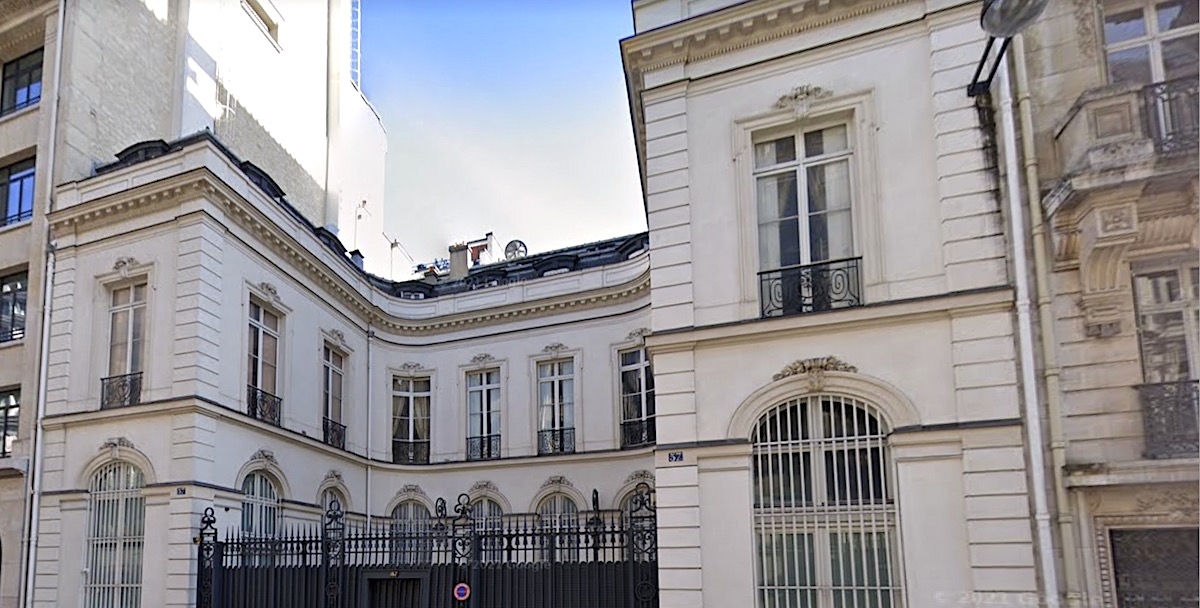The trial of Guy Wildenstein head of the New-York based art industry, Wildenstein and Company has been suspended on the third day of the hearing in Paris. It has now been referred to the Supreme Court over the constitutionality of the case. The tax fraud and money-laundering charges faced by the international art dealing family will now take a five month hiatus in order to overcome the technicality. The Wildensteins have been accused of hiding ownership of property, in a $600 million tax fraud.He now faces up to 10 years in prison if French justice is to be credible. The 70 year old hid countless undeclared masterpieces by artists like Monet, Degas and Picasso to avoid inheritance tax.
The wrongdoing came to light in 2001 with the death of Guy’s father Daniel. His widow Sylvia Roth, filed the first criminal complaint when her inheritance was reduced to a fraction of the families wealth. The Wildenstein brothers are said to have started hiding their assets at this point in time. The Wildenstein family had valued Daniel Wildenstein’s entire estate at $61 million (£41 million) an impossibly low value for billions in art assets alone. Wildenstein is accused of storing a large percentage of his inherited fortune in tax havens such as Switzerland, the Bahamas and the Cayman Islands.
Artlyst reported in 2011 that French police seized 30 masterworks of art from the Wildenstein Institute in Paris, alleging that many had been reported as missing or stolen by their rightful owners. They included hugely valuable sketches by Edgar Degas and a pastel by Eugene Delacroix. Some of the owners had complained that they were being stored for them and were offered for sale.
Mr Wildenstein is due in the dock with his nephew Alec Junior and Alec Wildenstein’s widow Liouba Stoupakova. In 2009 President Nicolas Sarkozy a close friend, awarded him with a Legion d’ Honneur.
Only two days after Guy Wildenstein’s $600 million tax-evasion trial kicked off in Paris, the Criminal Court has suspended the proceeding on the third day of the hearing, Wednesday, December 6, to probe the trial’s constitutionality.
The presiding judge has ruled that the question of the case’s constitutionality should be decided by the Court de Cassation (France’s Supreme Court), Le Monde reports. The trial of the international art dealer prosecuted for tax fraud and aggravated money laundering is thus suspended until May 4, pending the decision of the Court de Cassation.
Guy Wildenstein’s lawyers, Dezeuze Eric and Hervé Temime, and those of the late Alec Wildenstein, Jean-Pierre Martel and François Gery, requested a Priority Preliminary Rulings on the Issue of Constitutionality, abbreviated as QPC in the French legal system. An application for such a priority preliminary ruling is the right of any person involved in legal proceedings to argue that a statutory provision infringes rights and freedoms guaranteed by the Constitution.
The Wildensteins’ lawyers argue that the combination of the criminal procedure along with a tax-evasion dispute running into hundreds of millions of Euros raises legal issues that could be unconstitutional.
A lot is at stake in the Supreme Court’s ruling on the QPC, not only for the Wildensteins, but for all future major financial legal disputes. With this argument, the defense lawyers seek to have the Constitutional Council establish that a double administrative and criminal prosecution of tax matters is contrary to the “principe de la nécessité des peines,” a basic rule in French and international law that states that there can be no crime committed, and no punishment meted out, without a violation of penal law as it existed at the moment the alleged offence occurred. This also prohibits the creation of any retroactive laws to the disadvantage of the defendant.
Guy Wildenstein, 70, could be facing up to ten years of imprisonment. French authorities allege that Guy and his older brother Alec, who died in 2008, intentionally grossly undervalued the estate and started to hide assets after their father Daniel passed away in 2001. French authorities are demanding roughly $602 million in back taxes.

